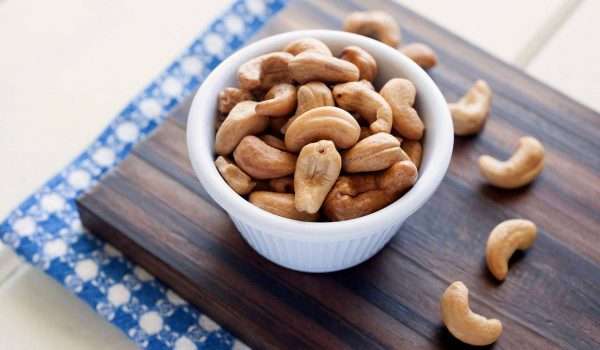In today's article, we'll discuss the benefits of cashews for iron deficiency. Cashews are a rich source of unsaturated fats, as well as being a rich source of energy, protein, vitamins, minerals, and powerful antioxidants. These provide numerous health benefits, and they can also be extracted to produce cashew milk, a plant-based alternative to cow's milk.
Numerous studies have shown the general benefits of nuts, especially cashews, in maintaining the health of various parts of the body, especially when consumed in moderation and regularly.
Benefits of cashews for iron deficiency
Anemia is a condition that occurs when the hemoglobin concentration in the blood of women (11%) and men (14%) is lower than normal, leading to a lack of oxygenated blood reaching the body's various cells and organs, resulting in fatigue, headaches, difficulty concentrating, and lethargy.
Of course, there are several types of anemia, such as anemia caused by defective red blood cells, called hemolytic anemia, which is primarily caused by malnutrition and a lack of iron-containing foods. Hemoglobin is an iron-rich protein that gives blood its red color. These cells carry blood to the lungs and reduce carbon dioxide, which is then exhaled.
Most blood cells are produced in bone marrow, a spongy red substance found in the cavities of bones that produces hemoglobin.
Of course, the body needs many minerals, including iron, to produce hemoglobin. A deficiency of these minerals can lead to fatigue, weakness, malaise, difficulty concentrating, dizziness, leg cramps, dehydration, stiff nails, shortness of breath, high body temperature, behavioral disturbances, and numbness in the extremities in children.
Iron and essential minerals are believed to lower hemoglobin levels in the blood.
Benefits of cashews for iron deficiency and general benefits of cashews
Cashews are a favorite nut for many people. Additionally, they provide a high dose of energy because they are a good source of monounsaturated fats, which help maintain heart health. They also contain various fat-soluble vitamins, such as vitamins A, D, E, and K.
Maintains heart health
Because cashews are a good source of monounsaturated fats, or heart-healthy dietary fats, healthy dietary fats are essential for your body because they allow the body to retain fats necessary for brain health, preventing blood clotting, and fat-soluble vitamins.
Rich in iron
It is one of the rich food sources of iron that can help prevent anemia that you may experience during pregnancy.
Maintains weight
Because it contains a substance rich in fat, but it is “good fat” that gives you energy and a feeling of fullness without causing weight gain.
Helps in fetal formation
Cashews contain copper, which is an important part of fetal development and maintaining healthy skin and hair.
Improve bone health
Cashews help improve the health of bones, tissues, muscles and organs because they are a good source of magnesium, which maintains blood circulation, supports the immune system and maintains bone strength.
Strengthening the immune system
Cashews play a key role in strengthening the immune system because they contain zinc, which can integrate proteins and repair wounds. It is also important during pregnancy, especially during fetal development.
How to avoid the harms of cashews?
To avoid the harmful effects of cashews, it is best to follow these tips and guidelines:
- Be mindful of the salt to fat ratio when eating roasted and salted cashews.
- Eat cashews if you have diabetes, for example: Monitor your blood sugar levels regularly while eating cashews, eat only moderate amounts of cashews, and consult your doctor about diabetes medications and recommended doses of cashews.
- Avoid cashews completely for people with cashew allergies.
- Do not eat cashews two weeks before surgery.
- Eat cashews in moderation and not in excess, keeping in mind that the concept of a moderate amount of cashews may vary from one person to another and from one health condition to another.
Related topics
